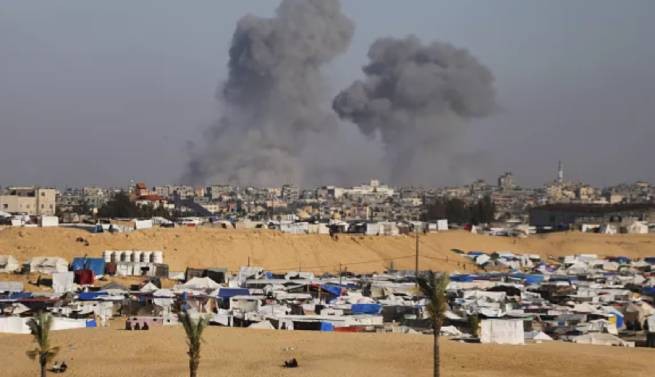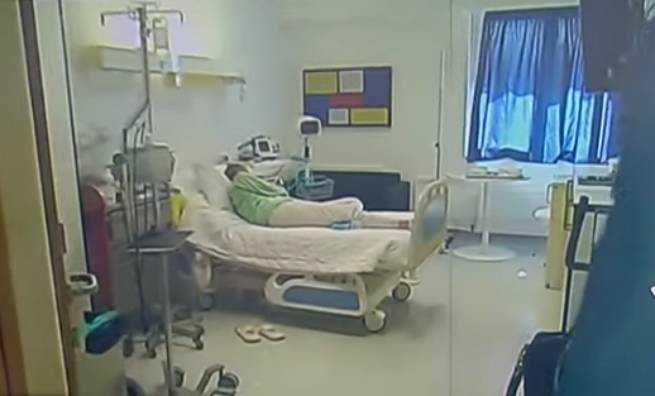On Saturday evening, the press service of the President of Belarus stated that Alexander Lukashenko held talks with the head of Wagner PMC Yevgeny Prigozhin, and he accepted the proposal to stop the movement of “Wagnerites” across Russia. What do these agreements mean?
First of all, you need to understand that by yesterday evening a contradictory situation had arisen: both sides of the confrontation found themselves in a rather difficult situation. In political terms, the rebellion of the head of Wagner “hung in the air” – practically none of the politicians, officials, security officials and just public figures inside Russia supported him.
State leaders, governors, Patriarch Kirill, the army command (including General Surovikin, with whom Prigozhin had always previously declared close relations) made condemning statements. Many bloggers and military correspondents, even those who previously supported Prigozhin, yesterday declared him a rebel working “in the interests of the enemy.”
But militarily the rebellion developed throughout the day, and the Wagnerites were rapidly advancing towards Moscow. The main problem for Russian President it became where to find enough forces in the rear to cope with a full-fledged rebellious army, in fact. After all, almost the entire active army and reserves are in Ukraine, and this helped the Wagnerites quickly capture the center of Rostov and advance towards Moscow. During the day, the Russian military-political leadership tried to solve this problem.
Certain forces were gathered in the Moscow region for defense of the capital and the region, but it would be enough to suppress the rebellion – only the development of the situation would show. In addition, Prigozhin had in his hands the main headquarters in Rostov-on-Don to manage the military operations of the Russians in Ukraine, and this, no doubt, created big problems for the Russian command.
It was in this situation that the unexpected appeared message from the press service of the Belarusian president on the agreements reached with Yevgeny Prigozhin on stopping the movement of the column Wagnerians. The message said:
“The President of Belarus, in agreement with the President of Russia, held talks with the head of PMC Wagner Yevgeny Prigozhin. The negotiations lasted throughout the day. As a result, they came to agreements on the inadmissibility of unleashing a bloody massacre on the territory of Russia. Yevgeny Prigozhin accepted the proposal of President of Belarus Alexander Lukashenko on stopping the movement of Wagner armed men on Russian territory and taking further steps to de-escalate tensions.At the moment, an absolutely profitable and acceptable option for resolving the situation is on the table, with security guarantees for Wagner PMC fighters.”
Later came the statement of the head of Wagner. Prigozhin did not mention negotiations with Lukashenka, however, he said that the Wagnerites were leaving “for the rear camps” (at the same time, he was a little deceitful about the spilled blood – it had already been spilled):
“Now the moment has come when blood can be shed, therefore, realizing all the responsibility for the fact that Russian blood can be shed on one of the sides, we turn our columns and leave in the opposite direction to the field camps, according to the plan.”
He did not say anything about the fact that the Russian authorities were ready to fulfill his conditions – to remove Shoigu and Gerasimov, or to leave the PMC as a separate structure. He just goes back where he came from. What does this mean?
The first option is Prigozhin’s capitulation. He was faced with a lack of support for the rebellion within the Russian Federation and, with the military prospects for the success of the rebellion not too clear, was forced to “give back” in exchange for security guarantees – his own and the “Wagnerites”. It was also beneficial for the President of the Russian Federation, since the rebellion was suppressed without the use of force.
The second option is a compromise considering the situation described above. That is, Prigozhin will receive something in return besides security guarantees.
The third option is a temporary compromise, pause in confrontation. It is more profitable, in this case, for Putin – he will have time to gather his strength and deliver a new blow to Prigozhin and the Wagnerites.
However, in any case, such a shock for the Russian Federation will not remain without consequences. Depending on one of the above options, the consequences can be either in the form of maximum tightening of the screws by Putin, or in the form of an expansion of the influence of some members of his entourage, one way or another tied to the story with Prigozhin. And if the confrontation continues, it can lead to an increase in destabilizing processes in society.
Noteworthy in this situation is the role of Lukashenka as an intermediary. She is not at all random. After the first news of the rebellion Belarusian opposition intensified, promising that “soon there will be changes in Belarus.” So Lukashenka, writes “Strana” itself was very interested in the fastest possible stabilization of the situation in Russia.







More Stories
Financial Times: Russia is actively preparing sabotage in Europe
Shock: Drag queen will carry the Olympic flame in Paris
Greece consistently ranks last in the EU for media freedom